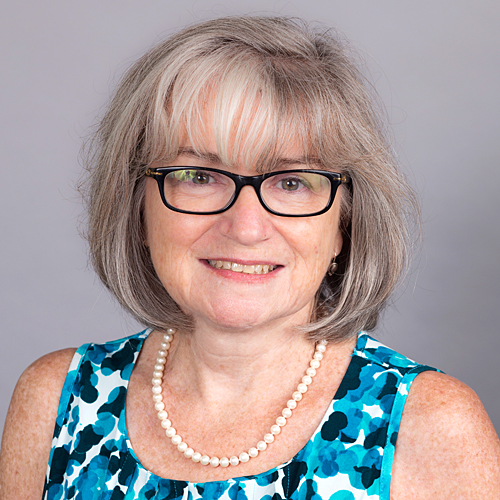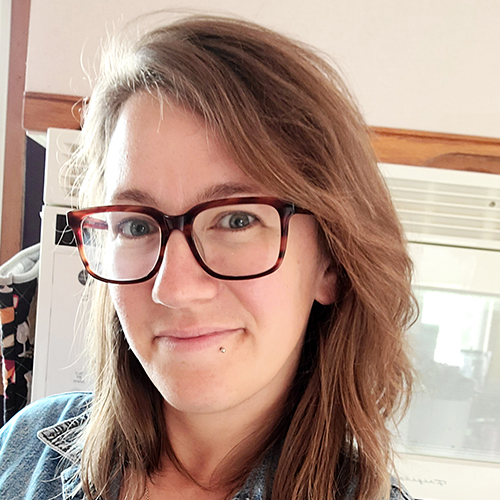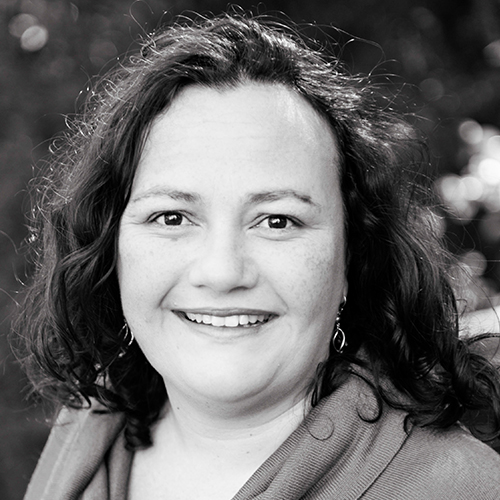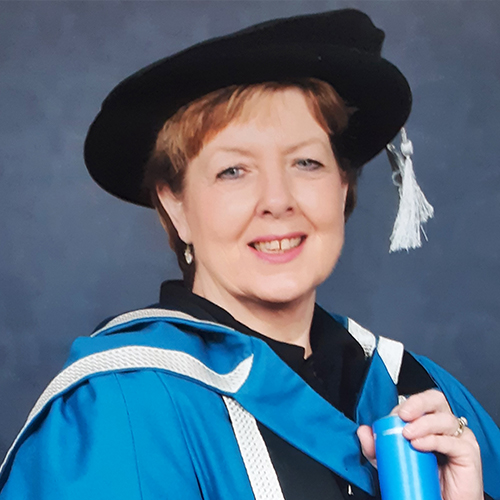 IBCLC Detailed Content Outline: Psychology, Sociology, and Anthropology Focused CERPs - Section V
IBCLC Detailed Content Outline: Psychology, Sociology, and Anthropology Focused CERPs - Section V
Access CERPs on Psychology, Sociology, and Anthropology for the IBCLC Detailed Content Outline recertification requirements. Enjoy convenient on-demand viewing of the latest Psychology, Sociology, and Anthropology focused IBCLC CERPs at your own pace.
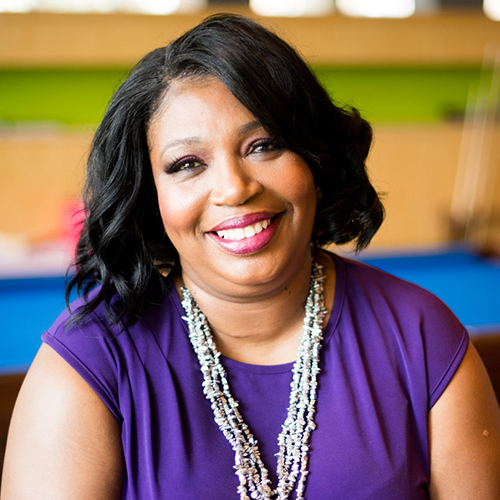
Enhancing Caregiver Attachments Through Imaginative Play and Emotional Storytelling

Althea T. Simpson, MBA, MSW, LCSW, RPT-S, is an innovative trainer, psychotherapy private practice owner, founder and President of Unicorn Life Training and the Black Play Therapy Society, and host of the Chronicles of A Play Therapist podcast. She is the author of Hurt to Healing: Child Witnesses of Domestic Violence and Their Invisible Injuries. Althea has a diverse background including research, mental health, and organizational consulting. A Certified LEGO® SERIOUS PLAY® Facilitator reinforcing a process of creative thinking and problem-solving, Althea facilitates thought-provoking and experiential skill enriching workshops for mental health professionals, corporations, and organizations throughout the United States. Althea’s passion is utilizing the healing powers of play to effect change on an individual and organizational level.
IG: @altheatsimpson
IG: @brickmagicplaytherapy
Facebook: https://www.facebook.com/unicornlifetraining
Twitter: @altheatsimpson
TikTok: @altheatsimpson
Youtube: https://www.youtube.com/channel/UCexheSp4-M-A-sW5w1aU5eQ
Play is an important milestone for babies and toddlers as it helps with development and reasoning skills. Play also holds a crucial role in providing a safe, caring, and protective attachment relationship between caregiver and child. Through pretend play, caregivers can help children express thoughts and emotions. Emotions are responses to different stimuli and children can learn appropriate ways to work through their emotions. Through storytelling caregivers can help children identify emotions without labeling emotions as “good” or “bad.” Caregivers who engage children in reading and storytelling promote brain development and imagination, develop language and emotions, and strengthen relationships. Learn more about the importance of play, the stages of development and how play works before language and memory are developed and examples of activities that encourage imaginative play.
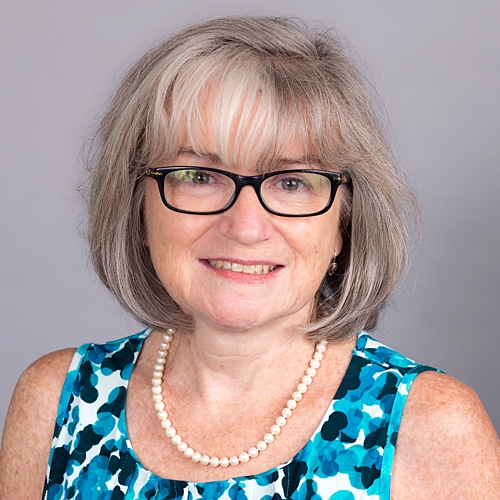

Dr. Hawes provides clinical services in the Neonatal Intensive Care Unit and at the Perinatal and Postpartum Clinic at the Center for Children and Families at Women & Infants Hospital, where she treats women and their partners experiencing perinatal mood and anxiety issues. Treatment includes individual and family psychotherapy. She is an assistant professor (adjunct) in the Department of Pediatrics at The Warren Alpert Medical School of Brown University. She trained in adult psychiatry and mental health at the University of Rhode Island and is board certified in adult psychiatric-mental health advanced practice nursing. Her research, clinical work, and lectures focus on stress and trauma related to the premature birth experience. In addition she studies the relationship between nursing practice and parent and infant outcomes; nurse-patient interaction; the healthcare work environment and provider and patient outcomes; and the epigenetics of stress. (https://vivo.brown.edu/display/khawes).
Classic animal studies have shown that maternal care of rat mothers e.g. licking and grooming and arched back nursing, impacts offspring outcomes such as behavior, development, and stress regulation. These outcomes persist over subsequent generations. Epigenetics, the study of how environmental influences affect gene expression, mediates these effects. In this session we will discuss and explore how similar epigenetic mechanisms in humans possibly relate to the protective effects of breastfeeding and maternal tactile stimulation on infant stress reactivity.

View Details / Enroll


Dominic Wilkinson is Director of Medical Ethics and Professor of Medical Ethics at the Oxford Uehiro Centre for Practical Ethics, University of Oxford. He is a consultant in newborn intensive care at the John Radcliffe Hospital, Oxford. He also holds a health practitioner research fellowship with the Wellcome Trust and is a senior research fellow at Jesus College Oxford.
Dominic has published more than 130 academic articles relating to ethical issues in intensive care for adults, children and newborn infants. He is co-author (with Julian Savulescu) of ‘Ethics, Conflict and Medical treatment for children, from disagreement to dissensus’ (Elsevier, 2018). He is also the author of 'Death or Disability? The 'Carmentis Machine' and decision-making for critically ill children' (Oxford University Press 2013) ("the best book of the decade in bioethics... this is a book that must be read by everybody who is seriously interested in the bioethical issues that arise in neonatal intensive care or, more generally, in decision making for children with chronic, debilitating or life-threatening conditions." (John Lantos, Notre Dame Philosophical Reviews). He was Editor and Associate Editor of the Journal of Medical Ethics from 2011-2018.
Neonatal intensive care frequently gives rise to challenging ethical questions, particularly when there are decisions to be made about starting or stopping potentially life-sustaining medical treatment. In this talk, I will cover three common and important questions relating to neonatal end of life care. When is it ethical to allow a newborn infant to die? How should decisions be reached about providing or discontinuing life-sustaining treatment? What decisions or actions are ethical (and unethical) as part of the end of life care of a newborn infant?

View Details / Enroll
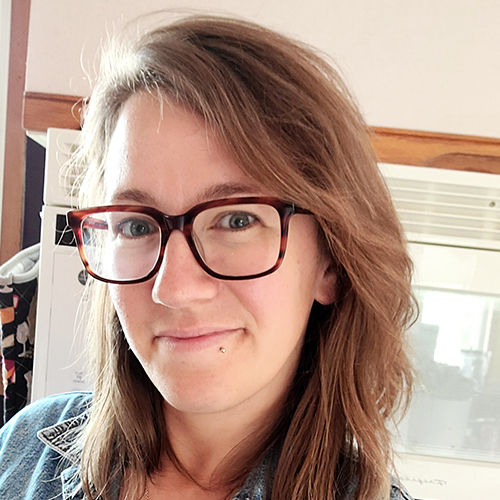
Exploring Bias and Racism in Sexual and Reproductive Health Care in Remote Canada: A Collection of Stories

Heather is a Métis Midwife from Winnipeg, Manitoba. She studied midwifery at Laurentian University, focusing on rural and remote practice. Heather practiced midwifery at the Seventh Generation Midwives Toronto for two years before moving to Hay River, Northwest Territories to establish a Midwife practice and help return birthing services to the community. Heather is now living and working in Yellowknife, Northwest Territories and is president of the Midwives Association of the Northwest Territories and is a Core Leader of the National Aboriginal Council of Midwives.
Systemic racism and bias of individuals in healthcare has a significant impact on the health and well-being of clients/patients, care providers, and communities.
The Canadian midwifery model of care is well-suited to mitigate some of the disparities caused by bias and racism in sexual and reproductive health care. It is also not impossible for well-intentioned midwives to contribute to, and uphold the systems that discriminate.
Drawing from her lived experience as a Métis midwife, Heather will share anecdotes and stories that illustrate the stark differences between communities where there is no access to midwifery care, compared to a community with access. She will explore ways that systemic racism is manifest within sexual and reproductive health care in Canada, and the impacts on patients/clients, healthcare providers, and communities.
Strategies to mitigate these negative impacts must be led by the communities that experience them and supported by others who work and live with these people. A strengths based, community-led approach must be taken. This requires taking a deep look within ourselves and the systems that we work in to understand the breadth of the problem that we face.
Participants will leave the presentation with concrete steps they can take to help combat racism and work towards dismantling systems that contribute to ongoing oppression.

View Details / Enroll
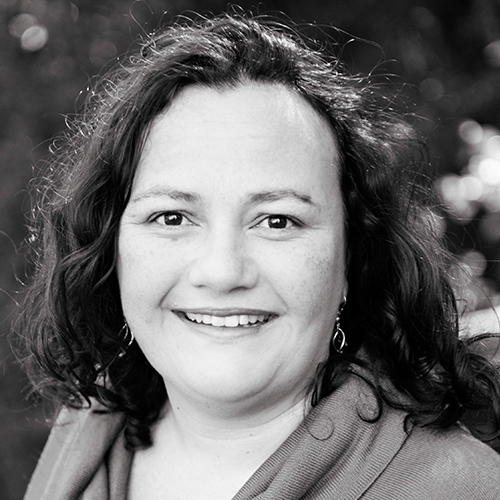

Debby Gould is a ‘BirthCare’ consultant providing education, support and counsel to women, partners, families and health professionals. Her goal is to provide transformational care to support education, empowerment and healing. She is an author of the book, ‘How to Heal a Bad Birth – Making Sense, Making Peace & Moving On’ and Co- Director of Birthtalk.org. Originally, a registered nurse she further trained and worked as a midwife, and is now a birth; educator, worker and counsellor, international author, speaker and mother of two children. For over twenty years she has supported women and men in the journey to healing after a traumatic birth, enabling women to make sense of their experience and its impact, offering hope for healing, and providing support and tools to process and make peace with what happened. She has shared in receiving the honour of a Lord Mayor’s Australia Day Community Achievement award for this work. Debby has been Birthtalk’s primary educator and facilitator of Healing From Birth meetings. She has presented for the ACM, Hypnobirthing Australia, Capers, Homebirth Australia, Australian Breastfeeding Association and various other maternal health and midwifery conferences. She guest lectures to Bachelor of Midwifery students at several Universities, and gives presentations for The Australian Doula College, Friends of the Birth Centre, Red Tent festival and other community groups. She also provides professional development for hospital midwives and doulas on the topic of Birth Trauma and how to support women to heal and have better births. She has co-written articles for Birthtalk’s blog “The Truth About Traumatic Birth” and has appeared in the media including radio, newspaper, birth and parenting magazines and podcasts and in the recent birth documentary ‘Birth Time’ as an experienced health professional’s voice to the issue of the importance of birth and traumatic birth.
Traditionally, an outcome focus has often been considered as the measure of ‘success’ in birth. When it comes to consent, that outcome tends to be ‘a live healthy baby’ and ‘the authority to do what is deemed desirable or necessary’. Considering an epidemic of birth trauma and the associations with the #metoo movement in birth, it is evident that this is not success for women and families. It is a narrow and damaging view that needs to be explored, understood, and changes made. The process of consent is valued, tangible, ethically and legally sanctioned, and provides key moments in care, to incorporate such change. A paradigm shift around consent is vital to address the experiences of assault and trauma in perinatal care. Conversation with families about consent is also a potential starting point to consciously address and intervene in damaging processes, and improve experiences, that could then be normalized and ripple out across all care delivery. Practical measures around consent and care processes will be explored with the aim to offer an intervention, when used consistently, to break the human mode of transmission of birth trauma, metaphorically, much like handwashing in our current pandemic.

View Details / Enroll
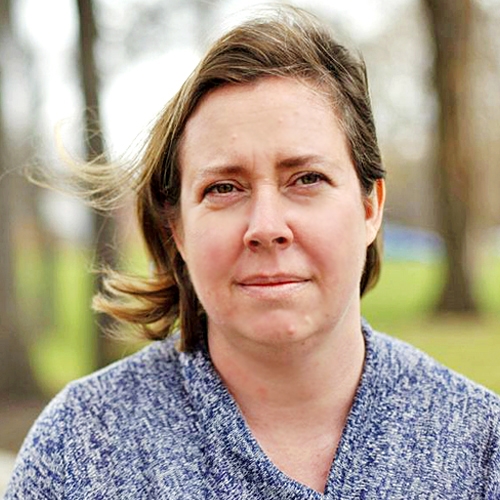
Facilitated Discussion on IYCF-E and the Role of the Lactation Professional

Michelle Pensa Branco MPH IBCLC is a lactation consultant and public health advocate. In addition to her clinical practice, which has included in-hospital, outpatient and private practice settings, she advocates for improved maternal-child health practices at the local, national and global level. She has a particular interest in the impact of trauma to breastfeeding families, models of peer support to improve breastfeeding outcomes and the application of health communication principles to the promotion and protection of breastfeeding. Michelle serves as the Director of Peer Support Programs and provides clinical lactation expertise for Nurture Project International, the only international NGO focused exclusively on infant feeding in emergencies. With Jodine Chase, she co-founded a Canadian non-profit organization, SafelyFed Canada. She is also an active member of the Ontario Public Health Association’s Breastfeeding Promotion Working Group. Michelle has previously served as the Vice-Chair of La Leche League Canada, the Communications Director for the Canadian Lactation Consultants Association as well as the Toronto Coordinator of INFACT Canada. When she is not travelling for work, Michelle stays close to home, living with her family just outside Toronto, Ontario, Canada.
Topic: Keeping the Fox Out of the Chicken Coop: Safeguarding Your Reputation Against Baby Feeding Industry Influence - [View Abstract]
Topic: Playing Well with Others: Collaborating in High Conflict/Low Trust Settings - [View Abstract]
Topic: Watching Our Words: Is Risk-Based Language Always the Right Choice? - [View Abstract]
In emergencies, breastfeeding saves lives - and yet, regardless of the location or type of disaster, breastfeeding and complementary feeding practices are eroded during an emergency. Infant and young child feeding in emergencies (IYCF-E) requires a multi-sectoral approach to meet the needs of both breastfed and non-breastfed children. Where do the skills of breastfeeding counsellors, educators and IBCLCs fit into the IYCF-E response? What competencies do IBCLCs need to provide clinical care in a humanitarian setting and how can IBCLCs obtain those (if they don’t already have them)? Bring your thoughts, experiences and questions and join us for a facilitated discussion about the role of skilled breastfeeding support in protecting infants and young children in emergencies.

View Details / Enroll
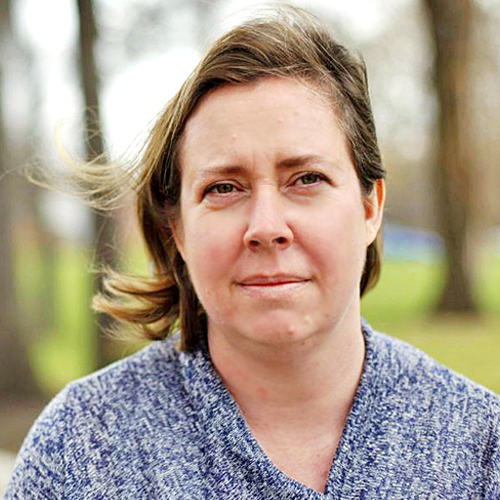
View Details / Enroll
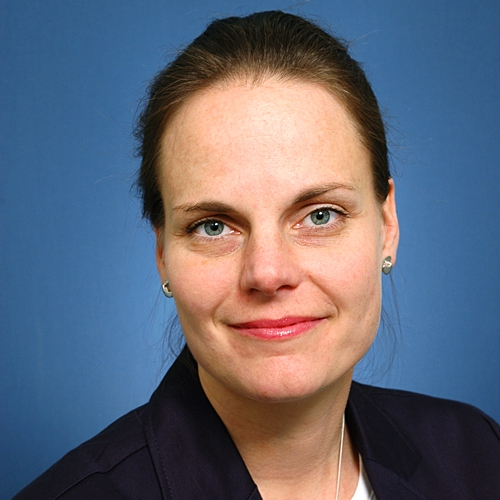

Anna Axelin’s academic career has included conducting quantitative and qualitative research on maternity and neonatal care in multidisciplinary and international research groups. In the Academic year 2011-2012, she joined the faculty of Department of Family Health Care Nursing in University of California San Francisco for her post-doctoral research. Since 2018, she was appointed as an associated researcher in the Department of International Maternal and Child Health at University of Uppsala in Sweden. In addition to the academic career, she has ten-year working experience as a NICU nurse.
She is leading the Health in Early Life and Parenthood (HELP) research group which aims to promote health and welfare in the early stages of life. Her special research interest is how to keep parents and sick newborns together throughout the infant hospital stay and strengthen their relationship already during pregnancy. Anna Axelin’s other research interests include pain and sleep in neonates, and the implementation of evidence-based practice in maternity and neonatal care with the help information technology.
Infants should not be separated from their parents. Parent-infant closeness is vital for the development of parent-infant relationship and consequently for parental well-being and optimal infant development. However, every year, due to medical care or hospital routines detrimental separation affects millions of infants. This presentation explores parents’ and staff’s perceptions of infant-parent closeness and separation in maternity care, delivery ward and neonatal intensive care environment. Based on these experiences, barriers (e.g. care routines and resources) and facilitators (e.g. patient centered communication skills, parent autonomy, single family rooms and couplet care) for closeness will be examined and potential strategies to facilitate parent-infant closeness in neonatal care are discussed.

View Details / Enroll
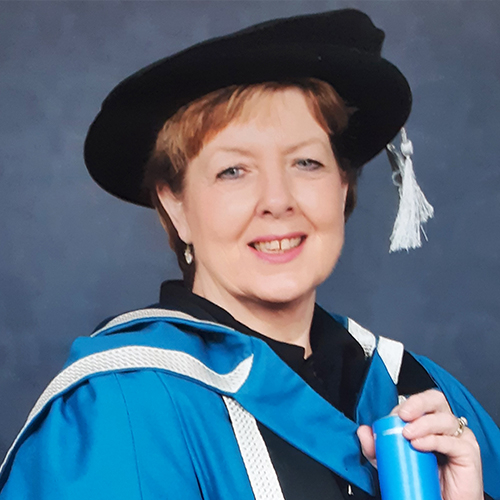
Family Centred Midwifery Care in Practice

First and foremost I am a mother, wife and latterly grandmother, my personal life has always largely informed my practice and I am always careful to remember that the women I meet are also like me in that they belong to a family.
I am a freelance consultant midwife one of the first in the UK and formerly employed at 2 very large and diverse maternity units. My career started in the 1970’s in nursing however midwifery was always my ambition and particularly the nurturance of midwifery led care.
I am a practicing psychotherapist interested in the emotional impact of childbirth; in part due to my own mothering experiences and research. I have worked closely with women to understand this phenomenon and researched emotional transition to motherhood.
Raising awareness for maternal mental health and particularly women surviving sexual abuse, I co-founded Sanctum Midwives campaigning on maternity care and sexual abuse. I have worked for many years raising awareness around the issues of maternal mental health and supporting both women and all those who work in maternity care situations. I believe positive mental health is the cornerstone to mothering and self fulfilment.
I have published widely in peer review journals but also in many books. My latest publication is ‘Understanding Anxiety, Worry and Fear in Childbearing Women’ which I edited and wrote 4 chapters. I am currently writing on the issues of child and adult female sexual abuse and its implications.
I care very deeply about women and their babies that they may come through their pregnancy and birth unharmed. I will continue to do this for the sake of midwives everywhere.
In 2016 National Health Service (NHS) England produced a report that is to be ground breaking in its ambitions and is part of the NHS Long Term Plan. The review team spent a whole year meeting with families, midwives, obstetricians and voluntary sector groups. This review team was led by Baroness Cumberledge, she understood the issues and was able to steer this work to its most important conclusion – personalised care centred around the woman and her family gives the best physical and psychological outcomes. The vision for maternity services across England is for them to become safer, more personalised, kinder, professional and more family friendly; where everywoman has access to information to enable her to make decisions about her care; and where she and her baby can access support that is centred around their individual needs and circumstances. If a small group of midwives managed the care of the woman, near to her home and she has access at all times to the information, choices about her birthing options then the benefits were huge. A reduction in premature birth, reduction in stillbirth, less risk of perinatal illness and of course reduction in maternal deaths. This is the reality for maternity services and now we are partway through implementation. I will present some of the realities for this model and the benefits for women and their families.

View Details / Enroll

Father Inclusive Prenatal Care: Coparenting Support for Expectant Fathers and Mothers

Paul Florsheim is a professor of public health at the University of Wisconsin Milwaukee and a Clinical Psychologist. He received his BA in History from Wesleyan University, an MA in Social Sciences from the University of Chicago, and a PhD in Clinical Psychology from Northwestern University. Dr. Florsheim’s research interests include public health approaches to supporting the development of adolescents and young adults, with a particular focus on healthy relations and the prevention of mental illness. He teaches courses at the that intersection of mental health and public health, including workshops on supporting young parents across the transition to parenthood. Dr. Florsheim has published over 50 journal articles and three books, including "Lost and Found: Young Fathers in the Age of Unwed Parenthood" and "The Young Parenthood Program: A Guide to Helping Young Mothers and Fathers Become Effective Co-parents, both published by Oxford University Press. Among his current research/intervention endeavors, Dr. Florsheim is co-directing the Father Inclusive Prenatal Care study in Chicago, which is funded by the Administration for Children and Families.
Father Inclusive Prenatal Care (FIPC) services are designed to provide expectant fathers with co-parenting support and parent education to help assure a successful transition to parenthood. We know that children are more likely to thrive when fathers are positively engaged in child-rearing. The two fundamental premises of the FIPC model are that: (1) many new fathers need support to successfully meet the interpersonal and psychological challenges of parenthood; and (2) prenatal clinics are well situated to address this need by expanding services to include expectant fathers. The FIPC approach begins with an engagement process that underscores the developmental significance of fatherhood, identifies what each father needs to prepare for parenthood, and tailors services to address those needs. The components of the FIPC program include communication skill building, psychoeducation about newborn care, and psychological support to help young men and women develop their identities as parents. This presentation will be delivered in three parts. Part one introduces the FIPC model, describing the step by step process of program delivery. Part two uses case material to demonstrate how to tailor FIPC services to individualized needs. Part three briefly describes ongoing research that supports the efficacy of the FIPC model.


Dr. Kelly McGlothen-Bell is an Assistant Professor at UT Health San Antonio, School of Nursing. As a nurse scientist, Dr. McGlothen-Bell is dedicated to understanding and resolving perinatal-infant health disparities in underrepresented groups, particularly among mother-infant dyads impacted by substance use disorders and preterm births. Dr. McGlothen-Bell uses interdisciplinary research, bio-behavioral methodologies, and community-engaged strategies to define and explore health priorities that can be remedied through culturally appropriate and sustainable health solutions. Her program of science focuses on understanding the relationship between infant feeding behaviors and readiness in high-risk infants and attunement between the primary caregiver and child during infancy and toddlerhood. The culmination of these findings contributes to the development of evidence-based interventions geared toward improving parental engagement and pediatric feeding success in marginalized populations. Dr. McGlothen-Bell has published numerous peer-reviewed articles related to developmental strategies for high-risk infants. She has also presented her work at conferences nationally and internationally. Dr. McGlothen-Bell has received numerous awards to include the 2019 National Association of Neonatal Nurses (NANN) Mentee/Mentor Grant Award. She was also selected as a 2019-2020 Academy Jonas Nurse Policy Scholar.
Topic: Feeding Behaviors in the Opioid Exposed Infant - [View Abstract]
As national rates of opioid use disorder continue to rise, the resulting impact on pregnant and parenting women and their children is immense. Severity of the central nervous system and gastrointestinal irritability in infants following prenatal opioid exposure, can affect their feeding behaviors and subsequently the caregiver-infant relationship. Feeding is a regulatory process that is difficult to characterize in prenatally opioid-exposed infants. As a result, caregivers, most often the mother, may struggle with feeding their infants. The complexity of an opioid use disorder for the mother and the subsequent opioid withdrawal of the infant may impede a mother’s ability to engage her irritable or sleepy baby.
Despite the known importance of feeding as a growth-fostering process, the evidence is lacking to guide recommendations for feeding management in this at-risk population. Evidence-based observational tools specific to the target population are warranted. Furthermore, feeding interactions between opioid- exposed infants and their caregivers need appropriate assessment and intervention to not only assist with the infant’s regulation and development of feeding skills, but also to support a nurturing feeding relationship. This presentation will shed new light on this important issue in infant feeding and highlight emerging research in the area.



